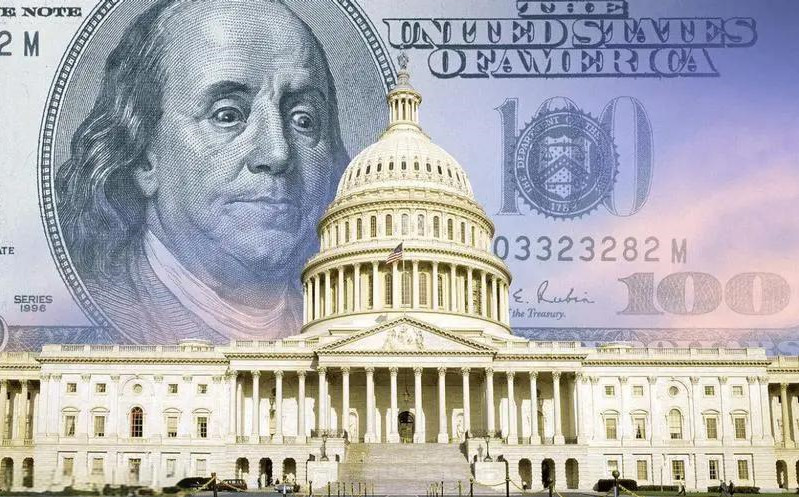
As the dust settles on the voting day of the 2024 US presidential election, the Federal Reserve is about to announce its latest interest rate decision at its upcoming meeting. The market generally expects the Federal Reserve to cut interest rates by 25 basis points at this meeting in response to the current complex and volatile economic situation. However, in the coming months, the Federal Reserve may face many challenges, including conflicting and unstable economic data, as well as policy uncertainty after the election. This article will provide an in-depth analysis of this.
Since the Federal Reserve began its interest rate cut cycle in 2023, global financial markets have responded positively to this. Especially after the Federal Reserve announced a 50 basis point interest rate cut in September 2024, many central banks followed suit, leading to a global wave of interest rate cuts. This measure not only helps alleviate the pressure on global economic growth, but also provides more liquidity support for financial markets.
Entering November, as the US presidential election approaches, market expectations for the Federal Reserve to cut interest rates have further increased. According to data from the Chicago Mercantile Exchange's Federal Reserve Watch, the probability of the Fed cutting interest rates by 25 basis points in November was once close to 100%. This expectation is mainly based on the following factors: firstly, the slowdown in US economic growth, especially the poor performance of the manufacturing and durable goods manufacturing sectors; Secondly, although the job market remains healthy, the number of new jobs added is lower than expected, and although the salary growth rate is stable, the risk of layoffs by companies is also increasing; Thirdly, global inflationary pressures have eased, providing space for the Federal Reserve to cut interest rates.
Despite strong expectations of interest rate cuts, the Federal Reserve still faces many challenges in its decision-making process. Recently, the US economic data has shown contradictory and unstable characteristics. On the one hand, the continued contraction of the manufacturing PMI indicates a lack of growth momentum in the US economy; On the other hand, the consumer confidence index and retail sales data have shown strong performance, reflecting consumers' optimistic expectations for the economy. In addition, although the overall job market remains healthy, the number of new jobs added is lower than expected, and areas such as durable goods manufacturing and temporary assistance services have become drag factors. These contradictions and unstable data require the Federal Reserve to be more cautious in its decision-making.
The outcome of the US election will have a significant impact on the future policy direction of the Federal Reserve. If Democratic candidate Harris wins the election, she may continue to implement existing economic policies, including increasing investment in infrastructure and green energy, raising taxes to support social welfare, and so on. These policies will help stimulate economic growth, but may also lead to increased inflationary pressures. If Republican candidate Trump wins the election, he may adopt more conservative economic policies, including tax cuts and reduced regulation. These policies will help improve corporate profitability, but may also exacerbate social inequality and trade tensions.
The policy uncertainty after the election requires the Federal Reserve to pay more attention to the impact of political factors on the economy when making decisions. Federal Reserve officials need to find a balance between economic growth, inflationary pressures, and political factors.
In the coming months, the Federal Reserve may face a more complex economic situation and policy environment. As global economic growth slows down and trade tensions intensify, the US economy may also be dragged down. Meanwhile, despite the easing of global inflationary pressures, inflationary pressures within the United States still exist. Especially in areas such as housing, healthcare, and education, price increases may have a negative impact on consumer confidence. Therefore, the Federal Reserve needs to closely monitor the development of inflation while cutting interest rates.
Faced with policy uncertainty after the election, the Federal Reserve needs to strengthen communication with the market and manage expectations. By timely issuing policy statements and holding press conferences, the Federal Reserve can convey clear information and expected management signals to the market. This helps stabilize market sentiment and reduce the negative impact of uncertainty.
In addition, the Federal Reserve also needs to pay attention to changes in the global economic environment. With multiple central banks cutting interest rates and implementing loose monetary policies to cope with economic growth pressures, the connections and interactions between global financial markets have become even closer. Therefore, the Federal Reserve needs to fully consider the impact of changes in the global economic environment and spillover effects when formulating policies.
In summary, it is a reasonable expectation for the Federal Reserve to cut interest rates by 25 basis points at its post election meeting. However, the Federal Reserve may face many challenges and uncertainties in the coming months. To address these challenges and uncertainties, the Federal Reserve needs to strengthen communication with the market and manage expectations, closely monitor the development of inflation trends, and pay attention to changes in the global economic environment. Only in this way can we ensure that the Federal Reserve's policy adjustments can effectively promote economic growth and maintain the stability of financial markets.

In October 2025, the US trade deficit narrowed unexpectedly to $29.4 billion, hitting the lowest level since 2009.
In October 2025, the US trade deficit narrowed unexpectedly…
According to the British media CoinJournal, recently, due t…
In January 2026, US President Trump once again set his sigh…
Europe is facing a crucial strategic choice: In the face of…
On New Year's Day 2026, BMW China announced a "systematic v…
In the grand narrative of human space exploration, the Moon…